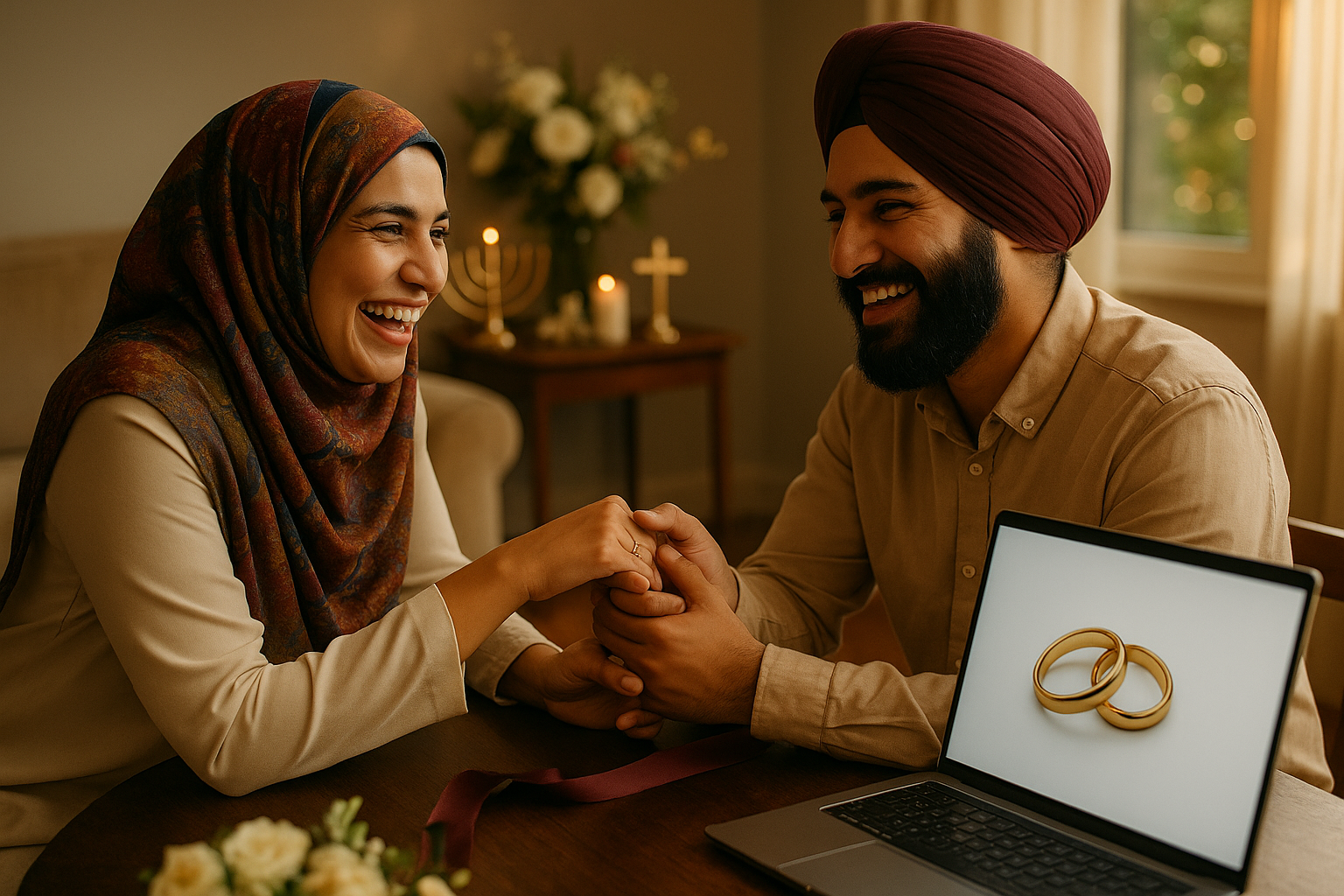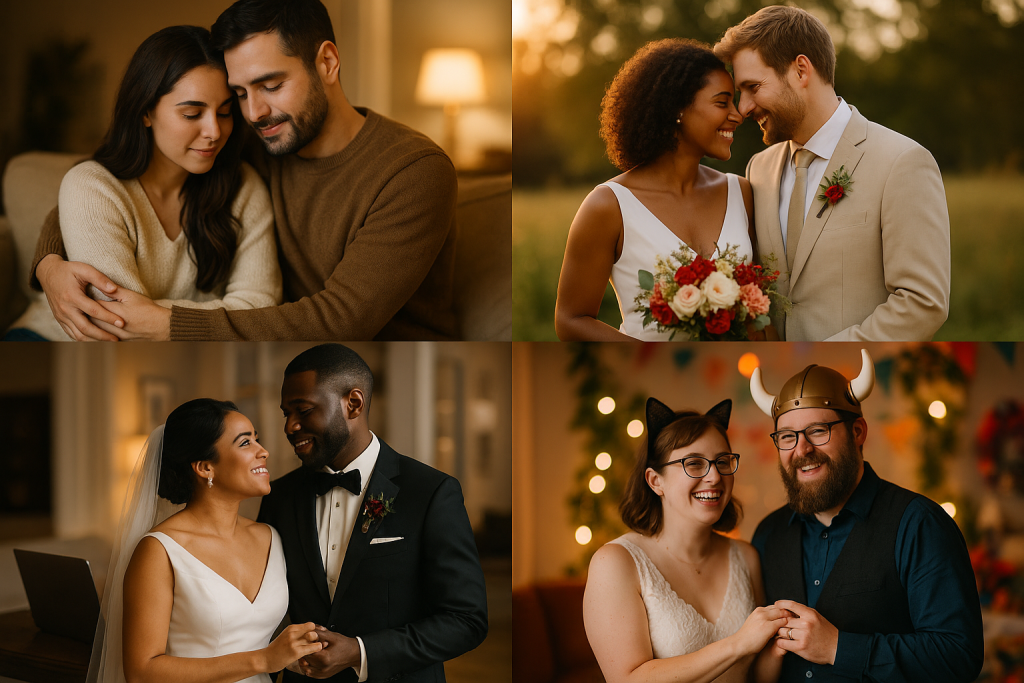In today’s interconnected world, love knows no boundaries. Couples from diverse religious backgrounds are increasingly seeking ways to honor their faiths while embracing modern conveniences. Virtual weddings offer a unique opportunity to celebrate love without compromising religious traditions.
Understanding Virtual Weddings
Virtual weddings, also known as online weddings or Zoom weddings, allow couples to get married online through digital platforms. These ceremonies are legally recognized in many jurisdictions and provide flexibility for couples separated by distance or facing logistical challenges.
Benefits for Religious Minorities
For couples from religious minority groups, virtual weddings offer several advantages:
- Inclusivity: Online platforms can accommodate various religious practices, ensuring that ceremonies are tailored to the couple’s faith.
- Accessibility: Family and friends from around the world can participate, regardless of location.
- Affordability: Virtual ceremonies often reduce costs associated with traditional weddings.
Customizing Your Virtual Ceremony
Personalization is key to a meaningful wedding experience. Couples can incorporate religious readings, music, and rituals into their virtual ceremonies. Collaborating with an experienced online minister familiar with diverse religious traditions can help ensure that the ceremony reflects the couple’s beliefs.
Legal Considerations
It’s essential to understand the legal requirements for virtual marriages in your jurisdiction. Obtaining an online marriage license and ensuring the ceremony is conducted by a legally recognized officiant are crucial steps. Services like Virtual Same Day Marriage offer guidance through this process.
Overcoming Challenges
While virtual weddings offer many benefits, couples may face challenges such as technological issues or coordinating across time zones. Planning ahead and conducting test runs can help mitigate these concerns.
Celebrating After the Ceremony
After the virtual ceremony, couples can plan in-person celebrations when circumstances allow. This approach provides flexibility and ensures that all loved ones can participate in the joyous occasion.
FAQs
Q: Are virtual weddings legally recognized?
A: Yes, many jurisdictions recognize virtual weddings, provided they meet specific legal requirements. It’s important to verify the regulations in your area.
Q: Can we include religious rituals in our virtual wedding?
A: Absolutely. Virtual weddings can be customized to include various religious rituals and traditions.
Q: How do we obtain an online marriage license?
A: The process varies by location. Services like Virtual Same Day Marriage can assist you in obtaining the necessary documentation.
Q: What if our families are in different time zones?
A: Scheduling the ceremony at a time that accommodates most participants and recording the event for those who cannot attend live are effective solutions.
Q: How do we ensure the ceremony runs smoothly?
A: Conducting a rehearsal and testing all technology beforehand can help ensure a seamless experience.
Embracing virtual weddings allows couples from diverse religious backgrounds to celebrate their love in a way that honors their faith and accommodates modern realities. If you’re considering a virtual wedding, contact Virtual Same Day Marriage today to learn how we can help make your special day both meaningful and memorable.



